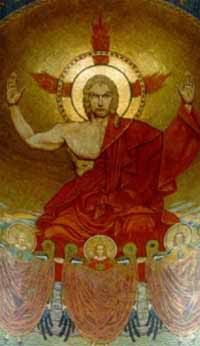Christmas controversy, protestants give up

If you run across early Christmas Cards from the 1800's, you can tell that times were very different.
This article is a reminder that protestants, having set themselves back to sola scriptura, could not abide celebrating Christmas on any certain day since that exact date was not listed in the Gospels.
Somewhere since the reformation, this pagan Catholic practice must have been dropped proudly. But shucks, since it seemed to do so little harm, and culture was getting so friendly with it, and since they had no better idea of when to celebrate Christ's birth... they just forgot about the whole thing.
Now most everyone can say Merry Christmas.
Catholics still have that pesky culture friction Advent period that we attend to. Imagine, no Christmas songs until Midnight Mass. Yes, we can imagine it very well.
This same culture that made Christmas acceptable to the protestants has corrupted its celebration, not knowing when to stop the evolving consumerism.
Nevertheless, Jesus is our hero and saves us. He deserves a birthday rememberance.
So every year for 1,700 years, we can't help ourselves, we celebrate.
His church's objection to Christmas is rare among U.S. Christians. Gallup polls from 1994 to 2005 consistently show that more than 90 percent of adults say they celebrate Christmas, including 84 percent of non-Christians.
That's a huge change from an earlier era, when many Protestants ignored or actively opposed the holiday. But as it gradually became popular as a family celebration, churches followed their members in making peace with Christmas.
The change didn't happen overnight. Through much of the 19th century, schools and businesses remained open, Congress met in session and some churches closed their doors, lest errant worshippers try to furtively commemorate the day.
In researching his book, "Christmas: A Candid History," Forbes discovered that major American denominations--Presbyterians, Baptists, Quakers, Methodists and Congregationalists--either ignored the holiday or actively discouraged it until the late 19th century.
That rejection was rooted in the lack of biblical sanction for Dec. 25 as the date of Jesus' birth, as well as suspicion toward traditions that developed after the earliest days of Christianity. In colonial New England, this disapproval extended to actually making the holiday illegal, with celebration punishable by a fine.
Christmas benefited from a 19th century "domestication of religion," said University of Texas history professor Penne Restad, in which faith and family were intertwined in a complementary set of values and beliefs. Christmas became acceptable as a family-centered holiday, Restad said, once it lost its overtly religious significance.
At the same time, aspects of the holiday like decorated trees and gift-giving became status symbols for an aspirant middle class. When Christmas began its march toward dominance among holidays, it was because of a change in the culture, not theology.
"In America, the saying is that the minister follows the people, the people don't follow the minister," Restad said. "This was more of a sociological change than a religious one. The home and the marketplace had more sway than the church."
That's partly why Christians like the United Church of God reject the holiday: They say divine instruction, rather than culture and society, should determine whether the holiday is appropriate. "It's common knowledge that Christmas and its customs have nothing to do with the Bible,"




0 Comments:
Post a Comment
<< Home